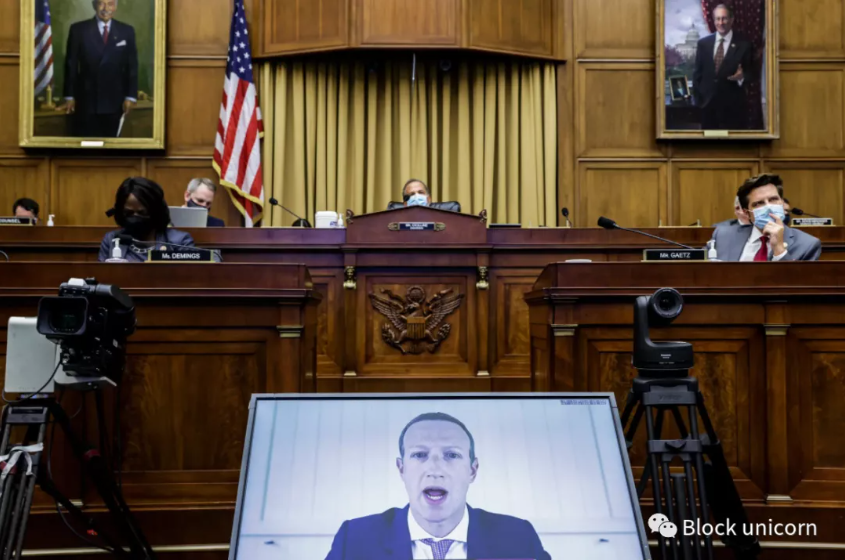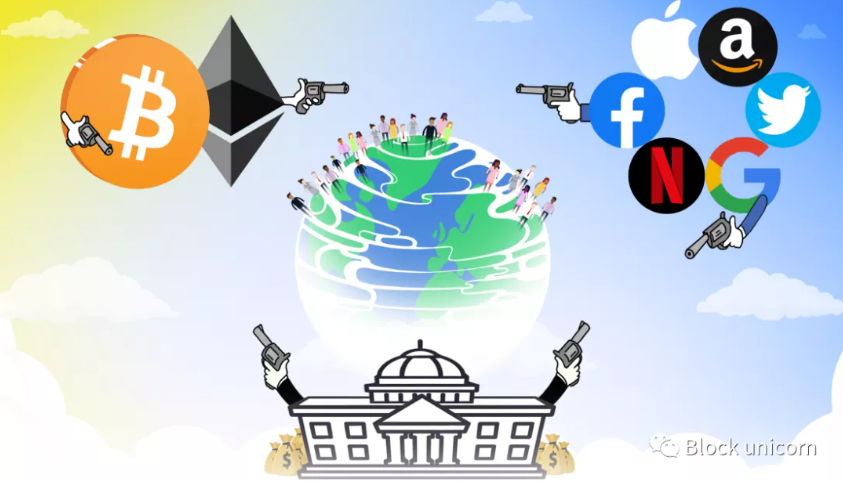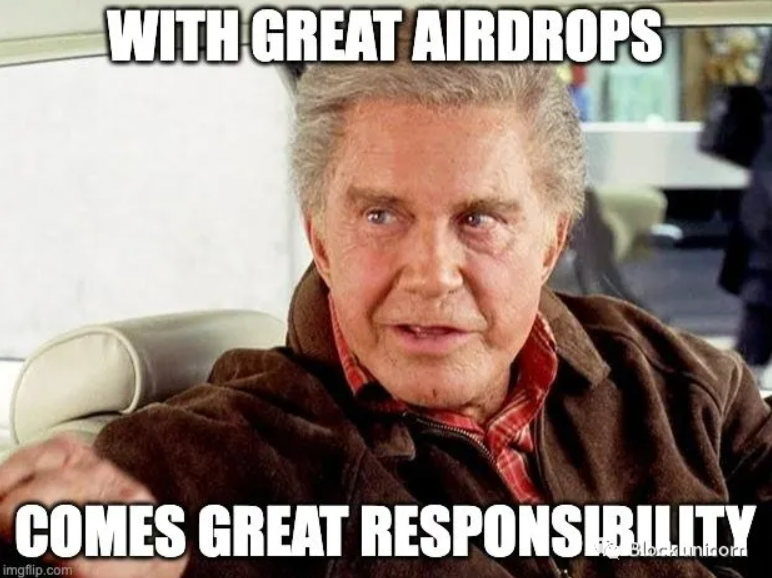In July 2020, the leaders of Silicon Valley's largest technology companies were called to Congress for antitrust hearings. Amazon's Jeff Bezos, Apple's Tim Cook, Facebook's Mark Zuckerberg and Google's Sundar Pichai defend their companies' stance in favor of free markets over government power threat.

The rare interrogation took place during nearly six hours of hearings, with lawmakers on the House's top antitrust subcommittee bringing with it millions of documents, hundreds of hours of interviews and, in some cases, once-private information from Silicon Valley's elite chiefs. They say it shows that some in the tech industry have grown too powerful, threatening competitors, consumers and, in some cases, democracy itself.
"Our founders will not bow before kings. Nor should we bow before the kings of the network economy," said Rep. David N. Cicilline (DR.I.). Washington post
While the stated purpose of antitrust law is to protect consumers and enable a free market, the hidden subtext is to ensure that no private entity can compete with the government for its monopoly over citizens. Ultimately, the Silicon Valley giants are farming the same resource that nation-states previously monopolized: people. Who has more data on people? Google or the CIA? Who understands the identity of people better? Facebook or the Department of Labor? No wonder the government wants to break up all the Web2 companies; they're all fighting for the same resource: us.
secondary title
expand or die
The goal of Web2 Corporation is to control as much of the planet as possible. As you can imagine, the government doesn't like this. Government must be number one. They must be the ultimate givers of social order and law. If they cannot impose order on an entity, then that entity must be ruled - or destroyed.
This is the social contract theory. As articulated by Enlightenment philosophers such as John Locke, Thomas Hobbes, and Jean-Jacques Rousseau, Western states were built on an implicit social agreement between citizens and government. In order to survive within the confines of a state, citizens must relinquish certain rights to the government Leviathan.
image description

secondary title
Web3: assigning power by default
Last week, the administrator of the Ethereum name service protocol issued and distributed 25% of its ENS governance token to more than 137,000 different individuals, worth over $1.25B to users. Another 25% is allocated to the approximately 500 individuals involved in the creation and maintenance of the ENS system, and 50% remains in the community treasury.
Last year, Uniswap similarly airdropped 60% of its issued tokens to the more than 140,000 individual wallets that interacted with the Uniswap app.
image description

secondary title
Web2 to Web3: The Scale of Collocation
Think how crazy the juxtaposition between Web2 and Web3 is. What the last monopolized WEB2.0 technology company is really willing to do is to break through its own body. These Web2 leaders will go to great lengths to invent any narrative, or tell any story about how they don't have the power that governments fear. They want the government to believe they are completely threatened by competitor interference and are in a constant battle for consumers' money and attention.
But in reality, the products produced by these Web2 giants are their monopoly. Due to their monopoly position, all their products have added value. The more monopolistic these companies are, the better their products are. Breaking these companies down into smaller pieces goes against how they were built. Like nation-states, Web2 companies either become monopolies or die.
In stark contrast, the Web3 organization is the exact opposite, a Web3 entity that, rather than centralizing power at the center (where the wrath of nation-states can be concentrated), is "decentralize or die".
This reality has revolutionized the way these organizations are structured. Uniswap distributed 60% of its power only about 3 years after its inception. ENS allocated 75% of its power along a similar timeline.
Instead of waiting for the wrath of nation-states to come knocking, it's in these WEB3 protocols "breaking themselves" in the best interest sooner rather than later.
In the inevitable collision of Web2 companies and nation-state interests, Web3 organizations are taking the initiative to decentralize themselves at the first available opportunity. Central authority is integral to the success of Web2 companies, and measures of decentralization are integral to the success of Web3 applications.
Where Web2 leaders can be convened for congressional hearings, Web3 DAOs are disembodied. Both Web2 and Web3 companies improve their products by operating larger networks. The larger the network, the greater the influence of the network. The difference between Web2 and Web3 is that the Web3 network has products.
In our podcast with Chris Dixon (Partner at A16z), he talks about how the Corporation ↔️ Network combination is fundamentally misaligned. Users feel the pain of this dislocation; everyone now knows that this profit maximization of social networks can cause mental health problems for users.
secondary title
emperor has no clothes
Web3 entities are aggressively doing what government leaders are asking Web2 companies to do: breaking up central power and pushing it to the margins. In our opinion, the government should be excited about this!
This disruptive new technology finally has the means to compete with the world's Web2 giants! at last! Long live! Perhaps free markets can address our concerns about centralized power in Web2.
Sadly, this is not the reaction you see from our government leaders. Instead, you see a denial of the concept of decentralization and an attempt to spread an illegal narrative across the industry. So why are so many government leaders so hostile to cryptocurrencies?
my answer? It was never about protecting consumers, it was about protecting the current power structure. Antitrust is the law that prevents any entity from growing large enough to threaten nation-states. Antitrust law says: "No, you can't have a monopoly. That would threaten our monopoly. So if you fly too close to the sun, we'll take your wings off."
Web3 organizations pose the same threat to nation-state power as Web2 companies. The only difference is that the decentralized nature of Web3 limits the ability of nation-states to disrupt anything that threatens their power.
Why? Because decentralization is resilient, centralization is fragile. Nation-states can get the CEOs of Google, Apple, and Facebook to stand, but they cannot bring ENS, Uniswap, or Synthetix to the stand. They may be able to bring in whoever they want, but the actual product itself is an unstoppable open source protocol. It (the Web) is already in the wild and there is nothing anyone can do to stop it.
We have two different worlds in front of us:
The government sees Web3 executing its stated antitrust aspirations of inspiring free markets and consumer protection and allowing them to innovate.
secondary title
remember first principles
As crypto evolves, I believe we look back on government intervention and see it as an annoying mosquito buzzing around our ears. Harmless in the end, but constantly spooking and flailing us.
Inflexible organizations like governments end up eroding flowing crypto rivers. Like a river, a cryptocurrency has a habit of skirting around obstacles it finds, eventually wearing down anything that stands in its path.
At the end of the day, the state of the world is determined by the desires of the people who inhabit it, and in today's world, the desires of people are extremely prominent.
These are the patterns that exist in the 2020s:
Distrust of current institutions is at an all-time high.
The gap between rich and poor is at an all-time high.
Society as a whole is aware of the impact Web2 companies have had on our lives.
Populism is "in".
Community and camaraderie-based investing in "sticking to men" (prioritizing helping circles of interest).
These are the patterns that exist in the Web3 organization:
Assign >50% control to users and communities.
Decentralization should happen sooner rather than later.
Minimize the concentration of founder power.
Minimal VC participation.
A community-first organization where users have power.
The adoption of Web3 will be a reaction to Web2 and government monopolies. The arrival of Web3 comes just in time to rescue us from the dangers of the antiquated organizational systems created by previous generations.
Thank God because I don't know how else we can fix these problems. Global problems require global solutions. The reason Web3 will win is simple: it gives people what they want. Whether they know it or not, people all over the world want Web3.